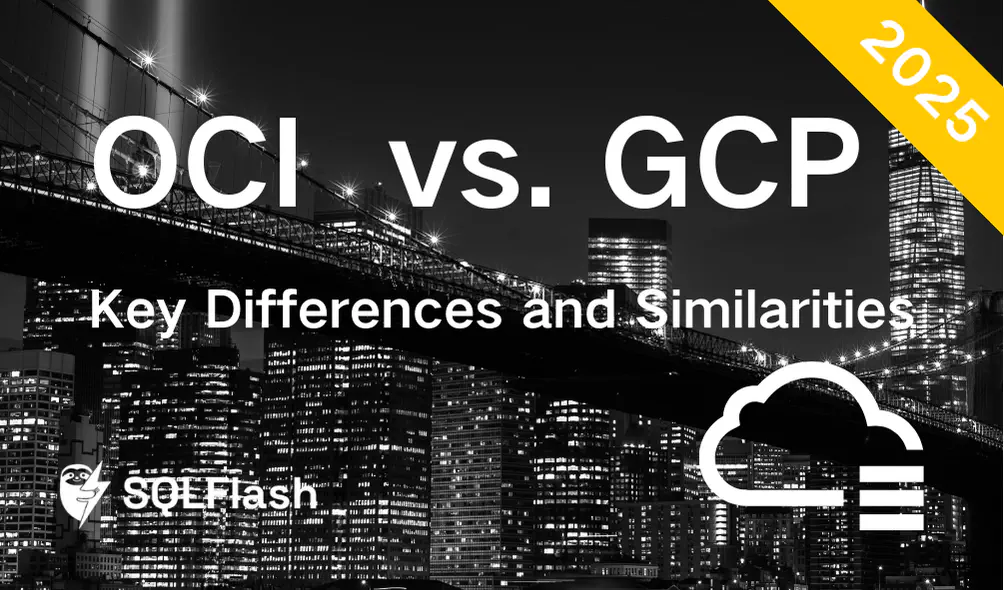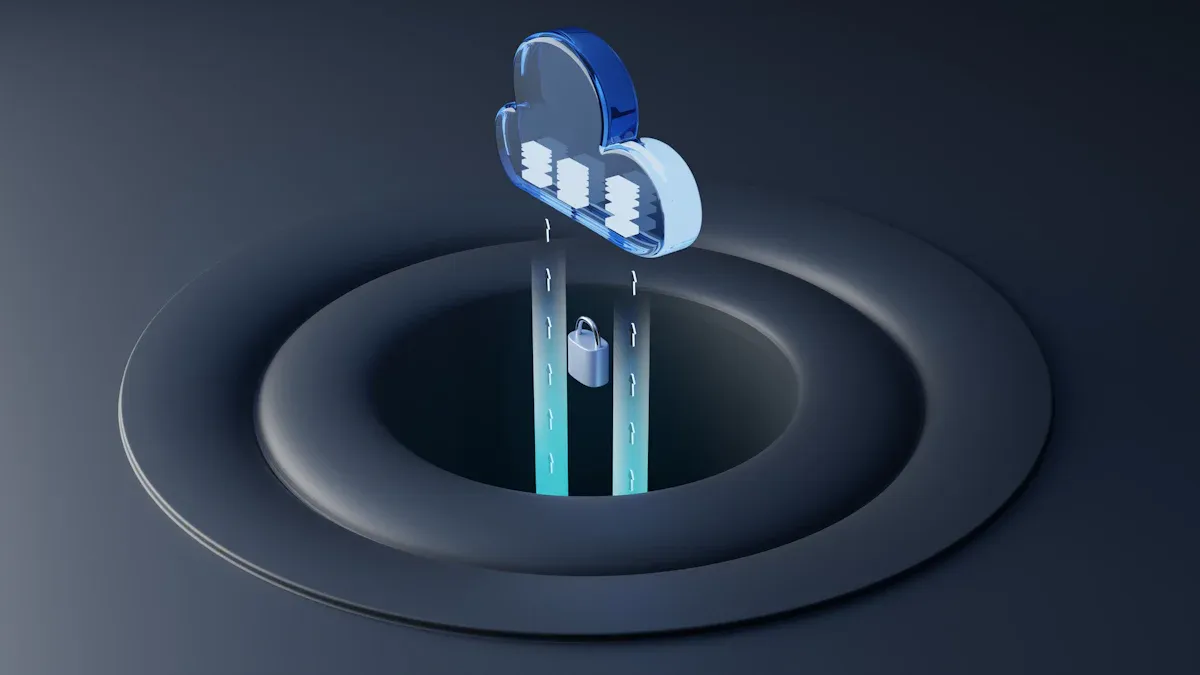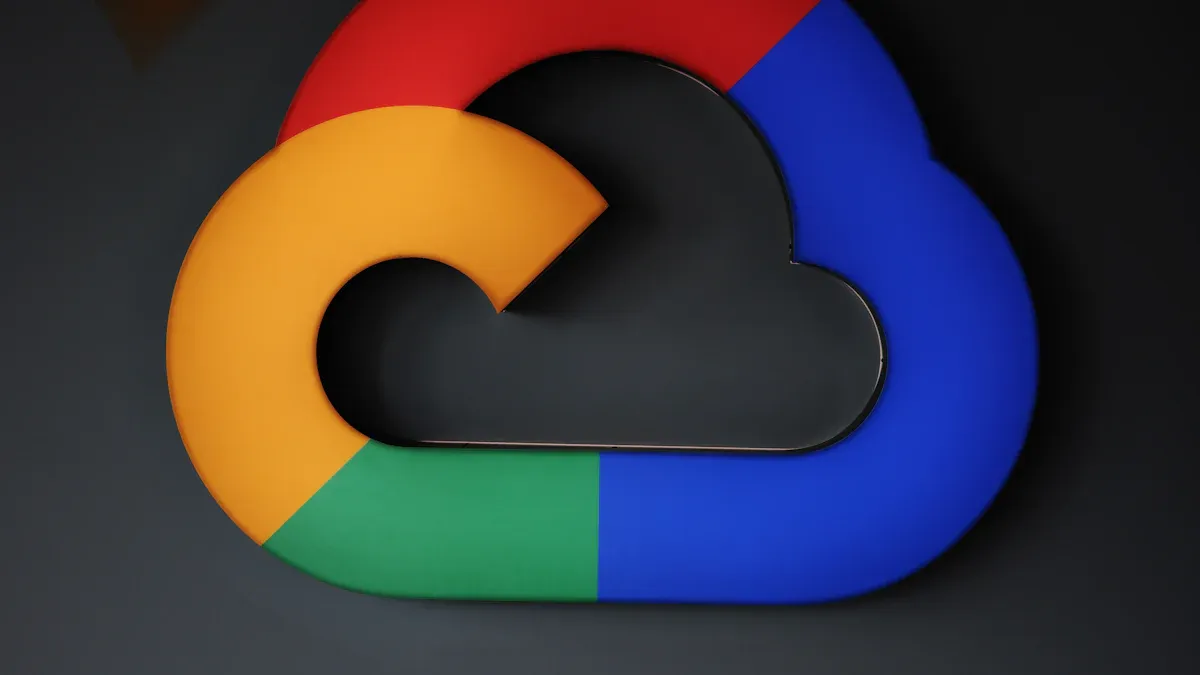Oracle Cloud Infrastructure(OCI) vs Google Cloud Platform(GCP) Key Differences and Similarities



Image Source: unsplash
Explore the key differences and similarities between OCI and GCP.
| Features | Oracle Cloud Infrastructure | Google Cloud Platform |
|---|---|---|
| Security Approach | Integrated security by default. | Robust security controls and compliance. |
| Pricing Model | Transparent, predictable pricing. | Flexible, tiered pricing structure. |
| AI Capabilities | Supports AI with integrated tools. | Leads in AI and analytics services. |
| Hybrid Cloud Support | Strong hybrid cloud capabilities. | Seamless multicloud integration with Oracle. |
| Compute Options | VMs, bare metal, optimized for Oracle. | Custom VMs, rapid deployment options. |
| Data Centers | 41 global data centers. | 130 global data centers. |
| Storage Solutions | High-performance block and object storage. | Scalable object storage with multiple classes. |
| Cost Management Tools | Built-in cost management features. | Billing reports and optimization recommendations. |
| Performance Guarantees | Strong SLAs for reliability. | Global redundancy and dynamic scaling. |
You need to choose a cloud service provider that fits your business goals. Oracle oci gcp stand apart in the cloud market, each offering unique strengths in infrastructure and innovation. Oracle excels with security and cost-effective infrastructure, while gcp leverages google’s advanced AI and analytics. The latest market data shows Oracle Cloud Infrastructure holds 3% market share with 7% growth, and Google Cloud Platform reaches 12% market share with 35% growth.
| Cloud Platform | Market Share (Q3 2024) | Year-over-Year Growth |
|---|---|---|
| Oracle Cloud Infrastructure | 3% | 7% |
| Google Cloud Platform | 12% | 35% |

Image Source: unsplash
When you explore oracle cloud, you find a platform built for enterprise needs. Oracle cloud infrastructure delivers a full suite of services, including compute, storage, database, and networking. These services support critical business functions and help you run demanding workloads with confidence. Oracle cloud stands out for its security-first approach. Every service includes built-in encryption and constant monitoring. You benefit from automated patching and performance tuning, which reduces manual work and keeps your data safe.
Oracle cloud also supports hybrid cloud strategies. You can run applications across both public and private environments, giving you flexibility as your business grows. Migration support is a key feature. Oracle cloud offers tools and programs that help you move your existing workloads with minimal disruption. Many industries, such as finance and supply chain, rely on oracle cloud to integrate AI into business functions, automate processes, and deliver real-time analytics.
Oracle cloud infrastructure focuses on cost-effectiveness, security, and seamless migration for enterprises.
| Service Category | Oracle Cloud Infrastructure (OCI) | Google Cloud Platform (GCP) |
|---|---|---|
| Compute | Yes | Yes |
| Storage | Yes | Yes |
| Networking | Yes | Yes |
With google cloud, you access a platform designed for innovation and agility. Gcp provides a wide range of services, from compute and storage to advanced AI and analytics. You can modernize applications, migrate workloads, and leverage powerful machine learning tools. Google cloud excels in AI and analytics, making it a top choice for businesses that want to unlock insights from their data.
Gcp supports hybrid cloud migrations and offers a strong multicloud partnership with oracle. This partnership allows you to run oracle databases natively within google cloud, streamlining operations and billing. Industries such as retail, telecommunications, and entertainment use google cloud to drive digital transformation, modernize applications, and deploy AI and ML solutions.
Oracle cloud and gcp both offer core services: compute, storage, and networking.
Oracle cloud emphasizes security, hybrid cloud, and migration support.
Gcp leads in AI, analytics, and multicloud integration with oracle.
When you compare oracle oci gcp, you see two distinct approaches to pricing. Oracle cloud uses a transparent pricing model that helps you predict costs with confidence. You pay only for what you use, and there are no hidden fees. Google cloud also offers pay-as-you-go pricing, but its structure can be more complex due to regional variations and service tiers.
Oracle cloud stands out for competitive pricing across its infrastructure services. For example, when you run typical workloads, you notice that oracle cloud charges significantly less for compute resources than other providers. The pricing model allows you to scale resources flexibly, which helps you optimize your total cost of ownership.
Oracle cloud delivers cost-effective solutions for enterprises that need predictable pricing and high performance.
Here is a comparison of estimated costs for compute resources:
| Cloud Provider | Estimated Cost (Typical Workload) |
|---|---|
| Oracle Cloud | $23K |
| Google Cloud | $30K |
| AWS | $30K - $37K |
| Azure | $30K (up to $48K in Brazil) |
You see that oracle cloud offers lower prices for similar configurations. A 4 vCPU AMD-based virtual machine with 16 GB of memory costs more than twice as much on AWS’s cheapest region. Oracle oci gcp both provide flexible scaling, but oracle cloud gives you more control over infrastructure costs.
Managing costs is essential when you use cloud infrastructure. Oracle cloud provides built-in cost management tools that help you monitor spending and optimize resource allocation. You can set budgets, track usage, and receive alerts when you approach spending limits. These features make it easier to control costs and avoid surprises.
Google cloud also offers cost management solutions, including billing reports and recommendations for resource optimization. Both platforms bill you based on actual usage, but oracle cloud’s competitive pricing and clear billing structure make it easier for you to forecast expenses.
Oracle cloud supports cost-effective solutions for storage services. Billing depends on storage used and API calls related to object versioning, lifecycle management, bucket replication, and multipart uploads. You can use SDKs and third-party tools to manage these services efficiently.
| Service Type | Oracle Cloud (OCI) | Google Cloud (GCP) |
|---|---|---|
| Block Storage (1x1 TB, 15K IOPS, 125 MB/sec, monthly) | $43 | 4X |
You benefit from lower costs for block storage on oracle cloud. This advantage helps you reduce infrastructure expenses and improve your total cost of ownership.
Data transfer costs can impact your cloud budget. Oracle cloud offers competitive pricing for outbound data transfer, especially in North America and Europe. The first 10TB per month is free, which helps you save on costs for large-scale operations.
| Region | OCI Outbound Data Transfer Cost | GCP Cost (N/A) |
|---|---|---|
| North America | $0.0085/GB | N/A |
| Europe | $0.0085/GB | N/A |
| Other Regions | $0.025/GB | N/A |
| Middle East & Africa | $0.05/GB | N/A |
| First 10TB/month | Free for OCI | N/A |
Oracle cloud’s pricing for data transfer remains among the lowest in the industry. You can move data across regions without worrying about unexpected costs. Google cloud provides competitive pricing, but oracle cloud’s structure is simpler and more predictable.
Tip: Always review your data transfer patterns to maximize savings and avoid unnecessary costs.
When you evaluate oracle oci gcp, you see that oracle cloud delivers competitive pricing, cost-effective solutions, and transparent costs for compute, storage, and data transfer. These advantages make oracle cloud a strong choice for organizations seeking predictable infrastructure expenses.
When you choose google compute engine, you access a powerful suite of compute services designed for flexibility and scalability. You can deploy virtual machines with custom configurations, selecting the exact number of cpu cores and memory for your workload. Google compute engine supports a wide range of cpu models, including Intel Xeon Platinum processors, which deliver strong performance for web servers, analytics, and enterprise applications.
You can launch compute instances quickly using google’s web-based interface. The platform allows you to scale resources up or down as your needs change. You benefit from integrated monitoring tools that help you track cpu usage and optimize performance. Google compute engine also offers GPU instances for machine learning and high-performance computing tasks.
Tip: Use google compute engine’s auto-scaling features to handle traffic spikes without manual intervention.
Here is a comparison of virtual machine options:
| Cloud Provider | VM Type | CPU Model | Memory per vCPU | Use Case |
|---|---|---|---|---|
| Oracle Cloud | VM Standard3.Flex | Intel Xeon Platinum 8358 | 4 GiB per OCPU | Enterprise applications, dynamic web servers, small-medium databases |
| Google Cloud | N2 | Intel Xeon Platinum 8273CL | 4 GiB per vCPU | Web and application servers, enterprise apps, analytics |
You see that both platforms offer flexible compute options with similar cpu performance. Google compute engine excels in rapid deployment and integration with google’s cloud ecosystem.
Oracle cloud infrastructure provides a comprehensive set of compute services tailored for enterprise workloads. You can select from virtual machines, bare metal servers, GPU instances, and cloud native compute options. Oracle cloud gives you the ability to run mission-critical applications with high reliability and security.
You can choose VM shapes with different cpu and memory configurations to match your business requirements. Oracle cloud infrastructure uses Intel Xeon Platinum processors, ensuring consistent performance for demanding workloads. You can deploy bare metal servers when you need direct access to physical cpu resources, which is ideal for databases and high-performance applications.
Oracle cloud supports VMware environments, allowing you to migrate existing workloads without major changes. You can use cloud native compute services to build and run modern applications with minimal overhead. Oracle cloud infrastructure optimizes compute for Oracle workloads, providing enhanced performance and seamless integration with database services.
Oracle cloud compute options include:
Virtual machines (VMs)
Bare metal servers
GPU instances
Cloud native compute
VMware support
You benefit from flexible scaling and predictable performance. Oracle cloud infrastructure enables you to manage cpu resources efficiently, reducing costs and improving reliability.
You can deploy containerized applications on both oracle cloud and gcp, but each platform offers unique features for managing containers and Kubernetes clusters.
| Feature | Google Kubernetes Engine (GKE) | Oracle Container Cloud Service |
|---|---|---|
| Platform Type | Enterprise-grade platform for containerized applications | Easy and secure Docker containerization |
| Application Support | Supports stateful and stateless apps, AI/ML, web apps, APIs, and backend services | Focuses on building and deploying applications with Docker |
| Management Features | Offers four-way auto-scaling, auto-repair, and auto-upgrade | Provides an easy-to-use interface for managing Docker environments |
| Security Features | Secure by default with vulnerability scanning and data encryption | Allows developers to connect to private Docker registries and manage their own containers |
| Developer Tools | Integrated developer tools and multi-cluster support | Out-of-the-box examples for containerized services and CI/CD pipelines |
| Deployment Ease | Single-click clusters for quick start | One-click deployment of application stacks |
| Monitoring | Integrated Cloud Monitoring with Kubernetes-specific views | Not specified |
Google Kubernetes Engine gives you advanced management features, including auto-scaling and integrated monitoring. You can deploy clusters with a single click and monitor cpu usage across your containers. GKE supports a wide range of applications, from AI and machine learning to web services.
Oracle Container Cloud Service focuses on secure Docker containerization. You can deploy application stacks with one click and manage your own containers. Oracle cloud infrastructure allows you to connect to private registries and build CI/CD pipelines with out-of-the-box examples.
Note: Both platforms support containerized workloads, but google cloud offers deeper integration with AI and analytics, while oracle cloud emphasizes security and ease of migration for enterprise applications.
You can choose the platform that best fits your container strategy. Oracle cloud infrastructure provides strong support for enterprise workloads and secure container management. Google compute engine and GKE deliver rapid deployment and advanced monitoring for modern applications.
You need reliable storage solutions to support your business applications. Both Oracle Cloud Infrastructure and Google Cloud Platform offer robust options for block and object storage. Oracle Cloud delivers high-performance block storage, ideal for databases and transactional workloads. You can scale storage capacity as your needs grow, ensuring consistent performance and low latency.
Google Cloud Storage provides flexible and scalable object storage. You can choose from several storage classes, such as Standard, Nearline, and Coldline, to optimize costs and availability. High availability ensures your data remains accessible, even during peak demand.
Here is a quick comparison of storage types and features:
| Platform | Storage Type | Key Features |
|---|---|---|
| Oracle Cloud Infrastructure | Block & Object Storage | High performance, scalable, secure, supports mission-critical workloads |
| Google Cloud Platform | Google Cloud Storage | Flexible, scalable, multiple storage classes, high availability |
Tip: Select storage options based on your workload requirements and business continuity needs.
Efficient data management helps you maximize the value of your cloud investment. Oracle Cloud offers autonomous database services that automate provisioning, scaling, tuning, and patching. You spend less time on administration and more time on innovation. The Exadata Database Service provides dedicated infrastructure for mission-critical workloads, delivering predictable performance and robust security.
Google supports advanced data management through integrated analytics and machine learning tools. You can leverage cloud-native databases for elastic scaling and seamless integration with other services.
Compare key data management features:
| Feature | Oracle Autonomous Database | Oracle Exadata Database Service |
|---|---|---|
| Usage | Fully managed, elastic | Dedicated, predictable |
| Performance | High, automatic scaling | Consistent, low latency |
| Manageability | Self-driving, automated | Manual, full control |
| Operations | Minimal admin effort | Requires DBA involvement |
| Cost | Pay-as-you-go | Subscription + pay-per-use |
| Scaling | Automatic, elastic | Vertical/horizontal scaling |
| Security | Built-in, automated | Robust, customer-managed |
| Configuration | Pre-configured | Custom setup |
You can choose the platform that aligns with your operational goals. Oracle Cloud simplifies management for variable workloads, while Google enables seamless integration with analytics and AI.
You need a strong networking foundation to run secure and scalable applications in the cloud. Oracle Cloud Infrastructure uses Virtual Cloud Networks (VCN), while Google Cloud Platform relies on Virtual Private Cloud (VPC). Both architectures let you create isolated networks, manage IP addresses, and configure subnets for public or private access.
Here is a comparison of key networking features:
| Feature | Oracle Virtual Cloud Network (VCN) | Google Virtual Private Cloud (VPC) |
|---|---|---|
| IP Address Management | Customizable IP address ranges | Flexible IP address allocation |
| Subnet Configuration | Supports public and private subnets | Supports public and private subnets |
| Connectivity Options | FastConnect, peering gateways | Interconnect, VPN |
| Security Features | Isolated network virtualization | Built-in security features |
| Integration with On-Premises | Yes, via virtual routers | Yes, via VPN and interconnect |
Oracle VCN gives you granular control over network segmentation and traffic flow. You can use FastConnect for dedicated, high-speed connections to your on-premises data center. Google VPC offers flexible IP allocation and seamless integration with other cloud services. You can connect your existing infrastructure using VPN or Interconnect.
Tip: Choose the networking architecture that matches your security and connectivity needs.
Security and compliance remain top priorities for cloud deployments. Oracle Cloud Infrastructure and Google Cloud Platform both meet strict industry standards. You can trust these platforms to protect sensitive data and support regulatory requirements.
Both providers hold certifications such as SOC 1, SOC 2, SOC 3, HIPAA, C5, CSA STAR, HDS, ISO/IEC 9001, ISO/IEC 27001, PCI DSS, and HITRUST. Oracle offers a detailed overview of its compliance achievements, helping you meet reporting and audit needs. Google stands out for robust security controls and global compliance coverage.
You can review each provider’s compliance documentation to ensure your cloud environment meets business and legal standards. These certifications help you build trust with customers and partners.
You want your cloud environment to deliver consistent uptime and dependable service. Oracle Cloud Infrastructure and GCP both provide strong reliability guarantees. Oracle Cloud offers monthly service level agreements (SLAs) that cover compute, block volumes, and network resources. You receive assurance that resource performance stays above 90% of published benchmarks for 99.9% of the time. If Oracle Cloud does not meet these standards, you qualify for service credits. GCP also maintains high reliability, supporting mission-critical workloads with robust infrastructure and global redundancy.
Here is a performance analysis of reliability metrics for Oracle Cloud:
| Service / Resource | Measurement | Monthly SLA Percentage | Oracle Service Credit if SLA Breached |
|---|---|---|---|
| Compute local NVMe drive | Disk IOPS | 99.9% | 10% / 25% |
| Block Volumes | Disk IOPS | 99.9% | 10% / 25% |
| Network | Network performance | 99.9% | 10% / 25% |
You can trust both platforms to deliver high availability and performance consistency for your cloud workloads.
Scalability determines how well your cloud solution adapts to changing business needs. Oracle Cloud Infrastructure gives you high-performance compute instances and supports both horizontal and vertical scaling. You can use built-in auto-scaling features to handle traffic spikes and optimize resource allocation. GCP provides dynamic capacity scaling, load balancing, and high-performance storage solutions. You can deploy auto-scaling and load balancing to maintain smooth operations during peak demand.
Compare scalability options for large enterprise workloads:
| Platform | Scalability Options |
|---|---|
| Google Cloud Platform (GCP) | Dynamic capacity and performance scaling, auto-scaling, load balancing, high-performance storage solutions. |
| Oracle Cloud Infrastructure (OCI) | High-performance compute instances, horizontal and vertical scaling, built-in auto-scaling feature. |
You gain flexibility and control with both cloud providers. Oracle Cloud and Google enable you to scale resources up or down as your business grows. You can rely on these platforms to support enterprise workloads and deliver consistent performance.
Tip: Evaluate your workload patterns to choose the right scaling strategy for your cloud environment.
You gain a unique advantage with Oracle Cloud Infrastructure’s autonomous services. The Autonomous Database stands out for its self-patching, self-tuning, and high availability. These features reduce manual intervention and help you maintain optimal performance. If your business already uses Oracle applications, you benefit from seamless integration and cost-efficiency. While Google Cloud Platform offers managed database services, Oracle’s focus on automation and deep integration with its ecosystem gives you a distinct edge in enterprise environments.
Both platforms deliver powerful analytics and AI features, but each takes a different approach. Google leads with a fully managed app development platform and scalable data analytics. You can access over 25 free products and $300 in credits as a new customer. Oracle Cloud Infrastructure provides visual analysis and embedded data visualization, supporting diverse data sources. You can use predictive analytics and machine learning to gain insights. The table below compares key analytics features:
| Feature | Google Cloud Platform | Oracle Cloud Infrastructure |
|---|---|---|
| AI Infrastructure | Managed app development, scalable analytics | Competitive intelligence, visual analysis |
| Machine Learning | Big data focus | Predictive analytics, integrated ML |
| Performance | Price/performance advantages | Visual reporting, embedded analytics |
Tip: Choose the platform that matches your analytics needs and business goals.
You can run workloads across both platforms using hybrid and multicloud features. Oracle Interconnect for Google Cloud lets you deploy applications without cross-cloud data transfer charges. You gain direct access to Oracle database services within Google datacenters. Flexible migration tools, such as Oracle Zero-Downtime Migration, help you move workloads easily. Both providers offer unified support and standard operations, so you can optimize cost, performance, and security across your cloud environments.

Image Source: pexels
When you evaluate global reach, you want to know where your data lives and how quickly users can access it. Both Oracle Cloud Infrastructure and Google Cloud Platform offer extensive networks of data centers. You can see the difference in scale by looking at the numbers:
| Provider | Number of Data Centers |
|---|---|
| Oracle Cloud Infrastructure | 41 |
| Google Cloud Platform | 130 |
Oracle Cloud Infrastructure operates 41 data centers worldwide. This network supports enterprise workloads and delivers low-latency access for users in key regions. Google Cloud Platform, with 130 data centers, provides even broader coverage. You can deploy applications closer to your customers, which improves performance and reliability. Both providers help you meet business needs in different parts of the world.
You need regional services that support compliance and security. Both Oracle Cloud Infrastructure and GCP offer specialized government cloud regions in the US, UK, and Australia. These regions deliver high security and help you meet strict compliance requirements.
| Region | Service Offered | Compliance Aspect |
|---|---|---|
| US | Government Cloud | High security and compliance |
| UK | Government Cloud | High security and compliance |
| Australia | Government Cloud | High security and compliance |
You can access compliance documents in the UK Government Cloud.
Compliance documents are not available in other government cloud realms.
These regional services help you address local regulations and industry standards. You can choose the right cloud provider based on your compliance needs and the locations where you operate.
When you compare Oracle Cloud Infrastructure (OCI) and Google Cloud Platform (GCP), you see clear differences and similarities across key categories. This table helps you review each platform’s strengths at a glance. Use it to guide your cloud decision.
| Category | Oracle Cloud Infrastructure (OCI) | Google Cloud Platform (GCP) |
|---|---|---|
| Pricing | Transparent, cost-effective, predictable | Flexible, regional, tiered |
| Compute | VMs, bare metal, optimized for Oracle | VMs, custom configs, rapid deployment |
| Storage | High-performance block & object storage | Scalable object storage, multiple classes |
| Networking | VCN, FastConnect, granular control | VPC, Interconnect, flexible IPs |
| Performance | Strong SLAs, high reliability | Global redundancy, dynamic scaling |
| Features | Autonomous services, hybrid cloud, security | AI, analytics, multicloud, GKE |
| Global Reach | 41 data centers, regional compliance | 130 data centers, broad coverage |
Tip: Review your business needs for pricing, performance, and features before you choose a cloud provider.
You can use this summary table to compare the platforms quickly. OCI gives you strong security and cost control. GCP leads in AI and analytics. Both platforms support enterprise workloads and global operations. Choose the solution that matches your goals.
You see clear differences and similarities between Oracle Cloud Infrastructure and Google Cloud Platform. Your needs drive the best choice. Oracle Cloud fits solutions for finance, healthcare, and manufacturing, while Google Cloud offers solutions for analytics, collaboration, and security. Assess your specific needs, review solutions, and match them to your business needs. For tailored solutions, consult an expert.
SQLFlash is your AI-powered SQL Optimization Partner.
Based on AI models, we accurately identify SQL performance bottlenecks and optimize query performance, freeing you from the cumbersome SQL tuning process so you can fully focus on developing and implementing business logic.
Join us and experience the power of SQLFlash today!.